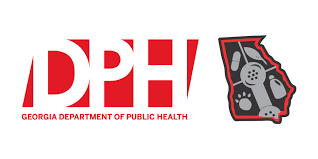Community Outreach
IPRCE is determined to bridge science into practice by conducting research that leads to evidence-based interventions.
The center has coordinated an extensive network of partners that represent state, regional, and local organizations and universities. During task force and stakeholder meetings, these partners provide input on the center’s strategic plan, including research, intervention, and outreach strategies.
The following organizations have representatives on IPRCE task forces and serve as resources to the community. Please explore their websites for additional education, research, and program resources and information.
Partner Highlights
Georgia Department of Public Health
The Georgia Department of Public Health (DPH) and IPRCE collaborate to expand the reach of education and training, outreach, and research in Georgia. Together, IPRCE and DPH hold statewide injury prevention stakeholder meetings, host internships for students, and collaborate on research-to-practice initiatives. Additionally, DPH was awarded three CDC-funded programs with the support of IPRCE and other stakeholders: 1) Firearm Injury Surveillance Through Emergency Rooms (FASTER), 2)Preventing Adverse Childhood Experiences Data to Action (PACES D2A), and 3) Building Our Largest Dementia (BOLD) Infrastructure for Alzheimer’s Act.
DPH website
Office of Respect
IPRCE and Emory’s Office of Respect often collaborate to bring awareness to sexual assault and relationship violence on college campuses. Together, we've created resource toolkits and hosted educational webinars and trainings that reached a wide audience of researchers, practitioners, and students.
Office of Respect Website
Region IV Public Health Training Center
IPRCE and the Region IV Public Health Training Center (Emory) have collaborated on a number of educational and training opportunities focused on injury, opioid misuse, and violence related topics. Our joint efforts have reached hundreds of public health practitioners across the United States.
Region IV Website
Georgia Governor's Office of Highway Safety
IPRCE and the Georgia Governor's Office of Highway Safety (GOHS) work together as thought partners on advancing transportation safety policies and creating resources for public consumption.
GOHS Website
Community Partners
- Centers for Disease Control and Prevention
- Chemical State
- Children's Healthcare of Atlanta
- Criminal Justice Coordinating Council
- Emory Healthcare
- Emory University School of Medicine
- Emory University School of Nursing
- Georgia Coalition Against Domestic Violence
- Georgia Department of Public Health
- Georgia State University
- Grady Health
- Jennifer Ann’s Group
- Men Stopping Violence
- Mercer University
- Morehouse School of Medicine
- Partnership Against Domestic Violence
- Rollins School of Public Health
- Safe Stats Alliance
- University of Georgia
Quotes From Our Partners
"IPRCE is a powerhouse of public health and injury prevention expertise and Shepherd Center is deeply appreciative to have partnered all these years with them. The work that we all do intersects beautifully through our joint task teams at IPRCE and The Governor's Office of Highway Safety. We could not do this work alone and greatly appreciate our partnership in making our communities safer."
- Emma Harrington Director, Injury Pevention and Education, Shepherd Center
"My experience in working with IPRCE has been fantastic! I value the ongoing collaboration opportunities and the incredible network of engaged researchers, practitioners, and colleagues who bring commitment and expertise to this group. "
- Michele Passonno, M.S. Ed., Assistant Director, The Office of Respect